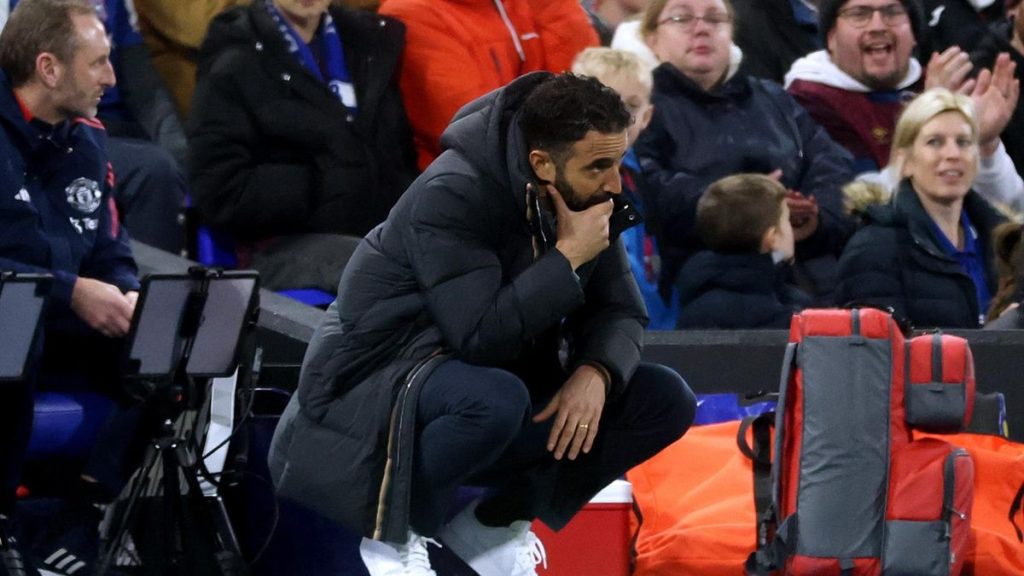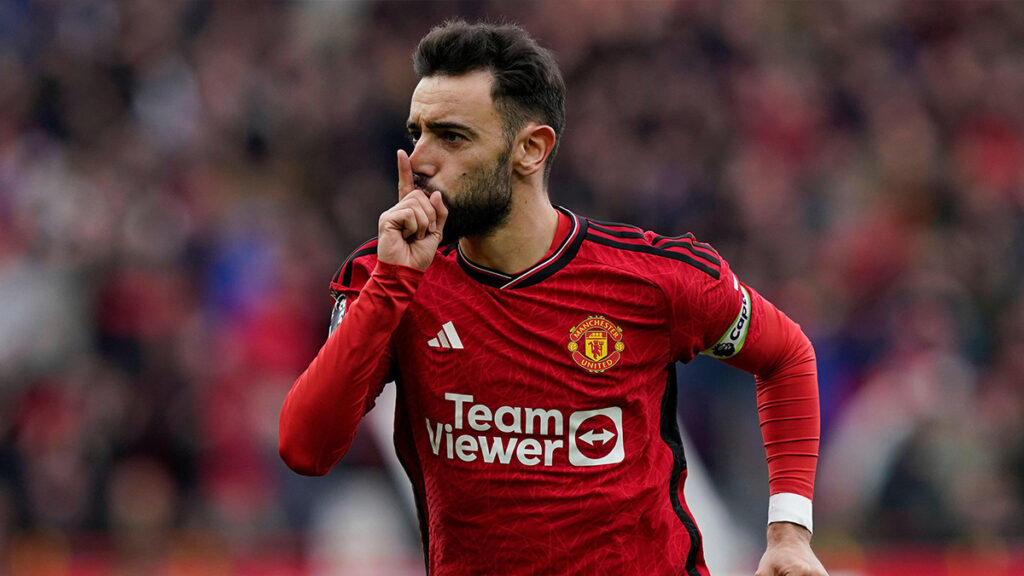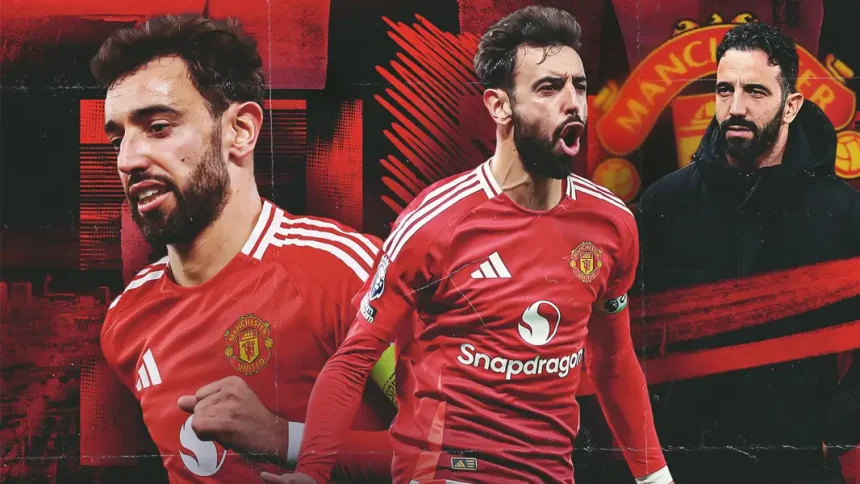Rúben Amorim’s arrival at Manchester United has ushered in a new era, marked by tactical experimentation and high expectations. The 39-year-old Portuguese tactician joined mid-season from Sporting Lisbon, succeeding Erik ten Hag after a poor start to the campaign. Known for his ability to rejuvenate struggling teams, Amorim has wasted no time in making his mark at Old Trafford.
However, his debut—a 1-1 draw against Ipswich Town at Portman Road—revealed both the potential and the challenges that lie ahead.
One of Amorim’s first significant changes was to transition United’s formation from the 4-2-3-1 setup used by Ten Hag and interim manager Ruud van Nistelrooy to a more dynamic 3-4-3 structure. This formation, which brought Amorim considerable success at Sporting Lisbon, promises greater flexibility in attack and defense. However, the adjustment has not been without growing pains.

While Marcus Rashford managed to find the net against Ipswich, the team as a whole struggled to adapt. The new setup exposed a lack of cohesion and fluidity, with players needing time to fully grasp their roles within the system. Despite these challenges, Amorim remains committed to embedding his tactical philosophy and believes the team will improve as they grow accustomed to the changes.
READ ALSO: Israel to Appeal ICC Arrest Warrants for Netanyahu and Gallant Amid War Crimes Allegations
Team captain Bruno Fernandes has emerged as a crucial figure during this transitional period. Speaking to reporters on Wednesday, Fernandes highlighted his responsibility to act as a bridge between the manager’s instructions and the players’ execution on the pitch.
“I’m really aware of what we do in training,” Fernandes explained. “I try to absorb everything from every position. Obviously, it’s not possible to get everything, but I try to have an idea of the game because—as the captain—sometimes the manager cannot give the message from the bench to the pitch because of the noise or whatever. You have to be able to solve the situation together with your teammates.”

Fernandes also acknowledged the collective accountability for the team’s earlier struggles, emphasizing that the players, staff, and management all share the blame for United’s disappointing start to the season.
“Obviously, if you change a manager mid-season, it is because things are not going as you want,” he said. “And if things are not going as you want, everyone has to take the blame. Everyone in their department. It is easier to get rid of a manager than 15 or 20 players. Now our focus is on what the future can bring and how we can adapt quickly to the new ideas of the manager.”
READ ALSO: Nigeria Secures $1.27 Billion in Capital Inflows from BRICS Nations
Amorim’s arrival marks a turning point for Manchester United, but the road ahead is anything but smooth. The draw against Ipswich, while far from disastrous, underscores the difficulty of implementing a new tactical system mid-season. Amorim’s ability to balance immediate results with long-term development will be critical to his success at Old Trafford.
One key challenge lies in maximizing the potential of United’s attacking players within the 3-4-3 framework. With Rashford, Bruno Fernandes, and others capable of producing moments of brilliance, the new formation could unlock greater creativity and dynamism. However, it will require time for the squad to gel and fully embrace Amorim’s vision.

As Manchester United prepare to host Norwegian side Bodo/Glimt in the Europa League, the match offers an opportunity for Amorim to demonstrate progress. The competition represents a chance to build confidence among the players and showcase the potential of the new tactical approach. For Amorim, a strong performance could provide a much-needed boost as he seeks to solidify his authority and earn the trust of the squad.
Thursday’s game will be closely watched by fans eager to see signs of improvement. While results are important, the manner of the team’s performance will also be scrutinized. A cohesive display against Bodo/Glimt could signal that Amorim’s tactical revolution is beginning to take shape.
READ ALSO: Arbitrum Unveils $1 Million Grant Program to Accelerate AI Innovation
Amorim’s tenure at Manchester United is still in its infancy, but the challenges he faces are immense. Transforming a team mid-season is a daunting task, particularly at a club with the weight of expectations that comes with United’s storied history. However, Amorim’s track record of success and his bold approach suggest he is well-equipped to handle the pressure.
As the team adapts to the new 3-4-3 system, fans will need to exercise patience. The journey may be fraught with setbacks, but Amorim’s vision for a more dynamic and cohesive Manchester United could ultimately pay dividends. For now, the focus remains on steady improvement, both in domestic competitions and on the European stage.

